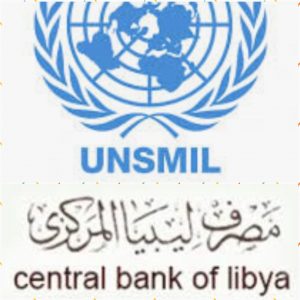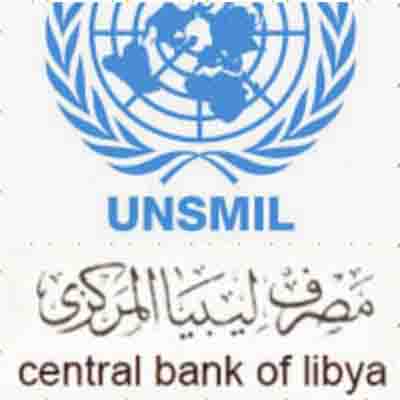By Sami Zaptia.

London, 28 August 2018:
The United Nation’s Libya mission, UNSMIL, confirmed today that a ‘‘work’’ meeting was held in Tunis yesterday between Tripoli-Central Bank of Libya Governor Saddek El-Kaber and acting head of the Beida Central Bank of Libya, Ali Hibri.
The meeting came at the invitation of UNSMIL head Ghassan Salame to discuss the audit of both banks’ activities since the 2011 revolution by an independent international audit team.
UNSMIL gave little details beyond saying that the meeting was ‘‘positive in its results’’.
It will be recalled that on 16 July, Mohamed El-Sallak, official spokesperson for Presidency Council and Government of National Accord head, Faiez Serraj, had revealed that the UN Security Council had responded ‘‘positively’’ to the 11 July request by Serraj for the urgent formation of an ‘‘international technical committee’’ to review and audit the expenses, revenues and transactions of both of Libya’s Central Banks in Tripoli and Beida.
El-Sallak had added that the details of this audit – the implementation mechanism and how it will be applied in practice – were still under consultation and that these and what action will be taken, will be explained later once agreed upon.
The call by Serraj was seen as an attempt to satisfy Libyan National Army Commander Khalifa Hafter in response to his accusation that the Tripoli CBL was financing terrorists, including Ibrahim Jadran.
The Presidency Council statement on the issue said that the action is aimed at achieving ‘‘the principle of impartiality and transparency and to face a very serious situation’’. It had added that this move was in the public interest, clarifying the reality of the financial situation for all and the expenditure of the previous period of any institution without exception. The move will contribute to the consolidation of the country’s financial and economic institutions on a sound basis, enhance confidence in the functioning of these institutions, improve the economy of the country and support stability, the statement concluded.
The Tripoli CBL had welcomed Serraj’s call for the formation of an audit committee.
The matter of an independent international audit of Libya’s oil money had arisen after a series of interlinked events set off by ousted former Petroleum Facilities Guard Commander (PFG) Ibrahim Jadran.
Hafter and his LNA had handed over the oil facilities in the eastern oil crescent to the eastern-based NOC. This came on the back of the LNA recapturing the oil crescent after Ibrahim Jadran had captured them on 14 June.
This, in turn, had led to the NOC announcing a force majeure on 2 July in response to Khalifa Hafter and his LNA action. Hafter’s move had been widely condemned by the international community. The return of the oil crescent by Khalifa Hafter and the LNA to the Tripoli-based NOC had come on the back of concerted international pressure on him.
Libya’s National Oil Corporation (NOC) subsequently went on to announce the lifting of force majeure in the ports of Ras Lanuf, Es Sider, Hariga and Zuetina after it reported that ‘‘the facilities were handed over to the corporation’’. It had said that oil production and export operations would return to ‘‘normal levels within the next few hours’’.
https://www.libyaherald.com/2018/07/18/unsc-responds-positively-to-libyan-request-for-audit-of-spending-by-its-central-banks/







